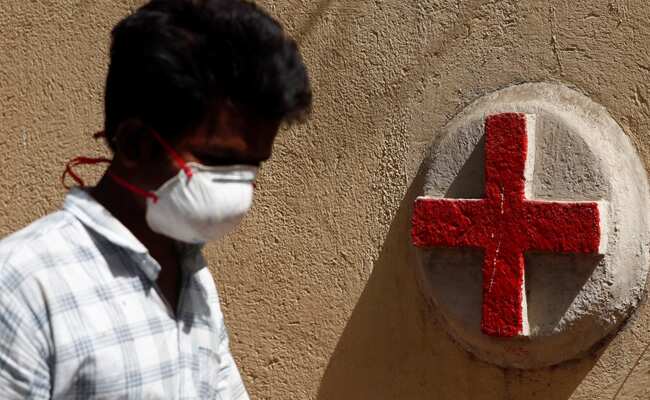"The environment plays an important role in determining the survivability and spreadability of the virus. Coronavirus tend to grow more in low temperature and humidity," says Dr Rajesh Chawla.

Sunlight and temperature above 26-27 degree Celsius are not favourable for coronavirus
Despite some doctors claiming that weather has no or little role to play in the new coronavirus (COVID-19) spread in India especially in the northern parts of the country, top health experts on Friday emphasised that the present weather in Delhi and NCR is conducive for the spread of the deadly virus.
Delhi is not going to see any substantial increase in the temperature any time soon, according to the Indian Meteorological Department (IMD), and low temperature generally facilitates the spread of coronavirus as we have seen in other colder countries - killing over 3,000 people and infecting close to 1 lakh people.
"The environment plays an important role in determining the survivability and spreadability of the virus. Coronavirus tend to grow more in low temperature and humidity," Dr Rajesh Chawla, Senior Consultant, Respiratory and Critical Care, Indraprastha Apollo Hospital in New Delhi, told IANS.
Two things that are not favourable for this virus are sunlight and temperature above 26-27 degree Celsius.
"Sunlight will cut the virus' ability to grow in half so the half-life will be 2.5 minutes. The temperature in south India ranges from 25-32 degree Celsius which is not favourable for the multiplication of virus. Also, the region tends to be humid as mostly it's a coastal area," Chawla explained.
Thus, the threat in southern India is lesser than the north India or north-east parts of the country, he stressed.
The three people who got infected by the virus in Kerala were treated and discharged from the hospital after they recovered.
According to Dr Meenakshi Jain, Associate Director, Internal Medicine, Max Super Specialty Hospital, Noida, it is the high heat that kills this deadly virus.
"When the weather is dry and hot, the spread of the virus will be under control. Good ventilation is imperative to reduce the chances of the spread of the virus. As the normal temperature in southern India is comparatively high, the chances of infection are low in that part pf the country," she told IANS.
One more person on Friday tested positive for novel coronavirus or COVID-19 in the Capital, said the Ministry of Health and Family Welfare, taking the total number of cases in the country to 31.
Over 28,000 people are under coronavirus observation in the country, according to Union Health Minister Harsh Vardhan.
According to the experts, the chances of infection are low as compared to the moist and cold regions of the nation.
"Crowded urban areas have higher chances of infections. With Holi coming up, crowded areas should be avoided. Anybody having fever, cold etc, should avoid coming to crowded places till they are not fit again. Avoid hugging, handshakes and kissing during the festival," Jain emphasized.
Masks generally do not have much role in reducing transmission of infections for the healthy.
People who are having infections or any flu should instead wear a mask to reduce the chances of infecting others. People who come in close contact with patients should always use high-quality masks to protect themselves from the virus, said the doctor.
No matter whether it is summer or winter, limiting the spread of coronavirus to the maximum extent possible should be the priority of everyone, added Chawla.
"Cover cough with a disposable tissue or use mask and discard them immediately. Don't wear the mask for more than a day. Viruses can last for 48 hours on objects and the only effective way to get rid of those is to wash and clean surfaces with soap," said New Delhi-based Dr. Renu Garg.
DoctorNDTV is the one stop site for all your health needs providing the most credible health information, health news and tips with expert advice on healthy living, diet plans, informative videos etc. You can get the most relevant and accurate info you need about health problems like diabetes, cancer, pregnancy, HIV and AIDS, weight loss and many other lifestyle diseases. We have a panel of over 350 experts who help us develop content by giving their valuable inputs and bringing to us the latest in the world of healthcare.














